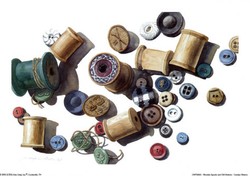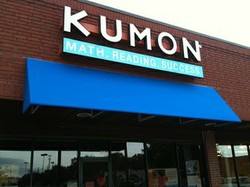
Addressing Common Problems That Kids Have with 2nd Grade Math
Learn which tools can help your child from falling behind on their 2nd grade math studies.
All parents want their kids to succeed in every field, but sometimes academic problems are apparent surprisingly early. Children often have trouble learning mathematics in particular; mainly due to the way that math is taught in a standard classroom environment. The good news is that most 2nd grade math problems are minor, and with the right tools, you can keep your child from falling behind.
How Kids Develop Early Math Problems
 Unlike some other academic fields, the concepts of each branch of mathematics are directly applied in the other branches. Kids can't learn to multiply and divide until they've learned to add and subtract, for instance. Unfortunately, most kids learn in classrooms with strict schedules. A minor conceptual misunderstanding can prevent a child from learning the next day's lesson, and without individual attention, the child will continue to fall behind.
Unlike some other academic fields, the concepts of each branch of mathematics are directly applied in the other branches. Kids can't learn to multiply and divide until they've learned to add and subtract, for instance. Unfortunately, most kids learn in classrooms with strict schedules. A minor conceptual misunderstanding can prevent a child from learning the next day's lesson, and without individual attention, the child will continue to fall behind.
Many kids' problems with 2nd grade math curriculum are actually very simple. If your child can't understand a certain math lesson, he or she probably misunderstands one of the core concepts behind the lesson. Fixing the problem simply requires individualized attention, but it's best to prevent math problems from developing in the first place through regular practice.
Monitoring Your Child's Progress
The best way to help a child struggling with 2nd grade math concepts is to build a custom curriculum that targets problematic concepts. Unfortunately, it can be tough to figure out exact which concepts your child understands without constant oversight. Electronic math games are helpful because they can track your 2nd grader's progress, allowing you to spot plateaus before he or she falls behind. Tracking a child's progress can be much more difficult with paper study materials, but electronic games automatically track, compile and analyze data to give you a clear idea of where to start each study session. Many games can even provide charts and customized lesson plans with little input from parents and teachers, yet they still work extremely well in coordination with classroom curriculum.
It's important to note that some educational games don't track progress. You should look for educational games with thorough progress tracking systems and make sure that lessons are actually education-oriented--some games focus more on entertainment and aren't effective as educational tools. If you decide to use math games, carefully evaluate your options and make sure that you're working with an appropriate learning system. The best games will regularly reintroduce concepts and re-teach them when necessary, as this type of approach is effective in helping kids retain their lessons. They'll also be fun. After all, kids learn better when they're engaged, so bright colors and fun game play can make a big difference in helping a child overcome his or her math problems.
Regularly Practicing To Correct 2nd Grade Math Problems
 When young kids are struggling with mathematics, lessons should be taught and practiced with an individualized approach, and math games offer parents a quick way to focus on potentially weak areas in a child's curriculum. Concepts can be slowly reintroduced in a way that is fun and engaging for young learners, and as 2nd grade math games can be customized, their content can be developed especially for each student.
When young kids are struggling with mathematics, lessons should be taught and practiced with an individualized approach, and math games offer parents a quick way to focus on potentially weak areas in a child's curriculum. Concepts can be slowly reintroduced in a way that is fun and engaging for young learners, and as 2nd grade math games can be customized, their content can be developed especially for each student.
In general, the old "practice makes perfect" adage holds true for math more than any other academic field. Regularly practicing math problems can help to keep your child learning and make it easier to stay ahead. However, it's important to establish the right type of practice. You can make your kids excited about math if you deal with problematic concepts in a fun way. For many parents, educational games are an ideal tool for spotting and addressing academic issues.
Best Selling Products for 2nd Grade Math
Teaching Elementary Students the Magic of Math
First Grade Math Lessons : Adding & Subtracting Money for First
You might also like
Buttons from the Rag Bag! Button Jar Math ActivitiesSave the buttons from discarded clothing and recycle them as fun, hands-on ma...
Kumon Math ReviewA mother's review of the Kumon Math program including suggestions for kumon a...







 Visual Learning Strategies: What to Look For in Math Learning Platformson 04/20/2012
Visual Learning Strategies: What to Look For in Math Learning Platformson 04/20/2012
 Blended Learning in the Elementary School Classroomon 04/18/2012
Blended Learning in the Elementary School Classroomon 04/18/2012
 Graphic Design Programs: Five Things You Didn't Knowon 03/27/2012
Graphic Design Programs: Five Things You Didn't Knowon 03/27/2012
 The Best-Kept Secrets of College Education: Community Colleges to Financial Aidon 03/27/2012
The Best-Kept Secrets of College Education: Community Colleges to Financial Aidon 03/27/2012



What are some of your strategies to help your child with math?
You are so right @TerriRexon! It's a core fundamental skill that will help students throughout their academic career. Thanks for stopping by!
It's amazing how many people pass through school without ever really getting math. It's definitely important to take the steps to address any problems early.